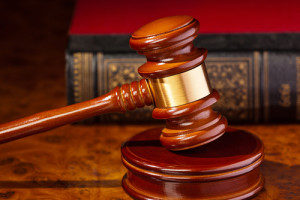DC Circuit Creates Split on Scope of First-to-File Rule Under False Claims Act
 By the C|C Whistleblower Lawyer Team
By the C|C Whistleblower Lawyer Team
Under the so-called first-to-file rule, “[w]hen a person brings an action under the False Claims Act, no person other than the Government may intervene or bring a related action based on the facts underlying the pending action.” 31 U.S.C. § 3730(b)(5). The rule serves two primary purposes. It encourages whistleblowers with allegations of fraud to come forward as quickly as possible by creating a race to the courthouse with only one possible winner. It also discourages and ultimately blocks copycat actions that provide no additional information to the government.
Following the explicit statutory language, the courts have been uniform in their view that the first-to-file rule only bars lawsuits related to underlying actions still “pending.” There may be other proscriptions to bringing related cases such as the public disclosure bar which prohibits False Claims Act suits based on information already within the government’s knowledge. But the courts have been clear that the first-to-file bar ends when the original action ends. That is, until now. With its decision in Shea v. Cellco Partnership, the DC Circuit has parted ways with its sister courts and created a clear split among the circuits on just how far the first-to-file rule should extend.
Shea involved a False Claims Act case against Verizon alleging it submitted prohibited surcharges to the government for reimbursement under a telecommunications contract Verizon had with the General Services Administration. The government intervened and ultimately settled the case with Verizon paying more than $90 million. Prior to the settlement, the same whistleblower filed a second action alleging a similar scheme by Verizon under additional service contracts with other government agencies. The district court dismissed the action under the first-to-file rule, finding the two actions based on the same underlying facts.
The whistleblower argued he should be allowed to file an amended complaint because the underlying action was no longer “pending” making the first-to-file rule no longer applicable. The district court disagreed. The DC Circuit upheld the district court’s decision. In a 2-1 decision, the Court ruled the first-to-file rule bars related complaints even when the prior action is no longer active. In doing so, the DC Circuit has essentially written out of the first-to-file rule the “pending action” statutory language and replaced it with “first-filed action.” The Court felt justified in this legislative rewrite because, in its view, “our reading better suits the policy considerations undergirding the statute.” The Court explained:
Reading the bar temporally would allow related qui tam suits indefinitely – no matter to what extent the government could have already pursued those claims based on earlier actions. Such duplicative suits would contribute nothing to the government’s knowledge of fraud.
However, in a strongly-worded dissent, one of the judges on the three-judge panel strongly disagreed with the majority’s reasoning. He pointed to the “straightforward understanding of the statutory text” which plainly limits its temporal scope to “pending” actions. He further rejected the majority’s overriding concern with fending off duplicative suits which, in his view, finds “primary voice” not in the first-to-file rule, but in the public disclosure bar. He also found the majority’s reasoning incompatible with the intended operation of the original source exception to the public disclosure bar: “There is no reason to think that Congress carefully and specifically opened the door to Relator B’s action via the original source exception, only to slam the door shut via the first-to-file bar.”
Given this strong dissent, and the countervailing decisions of the Fourth, Seventh and Tenth Circuits, it is anyone’s guess whether the DC Circuit’s ruling will stand. Clearly, the Supreme Court will need to weigh in on the question. Indeed, it is poised to do just that with the pending certiorari petition in the Fourth Circuit’s 2013 Carter v. Halliburton decision and which the High Court has sought the Solicitor General’s views. Stay tuned.
Tagged in: Multiple Whistleblowers and First-to-File,